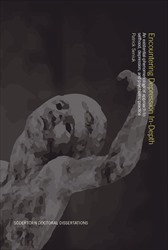Depression was formally designated as a psychiatric disorder in the Diagnostic and Statistical Manual (DSM-III), published in 1980, yet there remains no consensus with respect to depression’s underlying cause. Two broad models of causation have been historically used to characterize depression: biophysiological dysfunction or psychogenic processes. Interviews with psychiatric professionals reveal that this polarized causal view of depression pervades contemporary clinical attitudes, in terms of biological or developmental-psychological explanations. It has become increasingly clear that science alone cannot exhaust how we explain human behavior, and phenomenological philosophy permits us to investigate and describe depression beyond the binary model of causation.
Existential-phenomenological philosophy broadly espouses that scientific investigations of depression fail to recognize that causal explanations are only possible by abstracting from the lived-experience of the disorder. The philosophy of Maurice Merleau-Ponty and Erwin Straus demonstrate that all experience presupposes a relationship between the self and the world, a relationship that is effaced by scientific abstraction. Accordingly, a robust understanding of depression must attempt to draw out the way in which selfhood is a necessary feature of depressed experience. A phenomenological analysis of perception reveals that selfhood is a developmental and embodied style; a self-style. Subsequently, psychotherapy should be characterized as an existential project, the aim of which is to disclose how the depression inhibits the ability to be oneself.
Patrick Seniuk is a philosopher of psychiatry and bioethicist working at the intersection of theory and practice. This is his doctoral dissertation.


